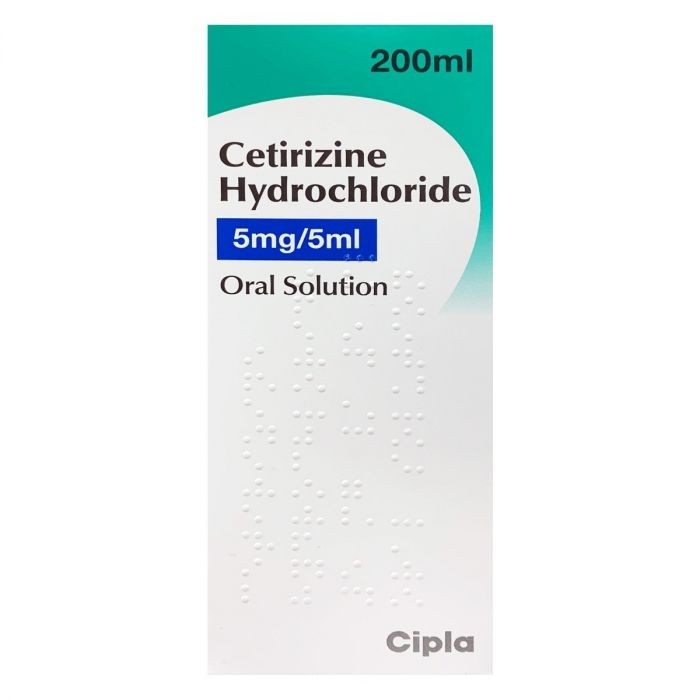
cetirizine liquid – oral, Zyrtec
Medication Uses How To Use Side Effects Precautions Drug Interactions Overdose Notes Missed Dose Storage USES: This medication is an antihistamine that treats symptoms such as itching, runny nose, watery eyes, and sneezing from "hay fever" and other allergies. It is also used to relieve itching from hives.Cetirizine does not prevent hives or prevent/treat a serious allergic reaction (e.g., anaphylaxis). Therefore, if your doctor has prescribed epinephrine to treat allergic reactions, always carry your epinephrine injector with you. Do not use cetirizine in place of your epinephrine.If you are self-treating with this medication, it is important to read the manufacturer’s package instructions carefully so you know when to consult your doctor or pharmacist. (See also Precautions section.) HOW TO USE: If you are self-treating with the over-the-counter product, read all the directions on the product package before taking this medication. If your doctor has prescribed this medication, follow your doctor’s directions and the instructions on your prescription label. If you have any questions, consult your doctor or pharmacist.Take this medication by mouth with or without food, usually once a day or as directed by your doctor. Measure the dose carefully using a special measuring device/spoon. Do not use a household spoon because you may not get the correct dose.Dosage is based on your age, condition, and response to treatment. Do not increase your dose or take this drug more often than directed. Do not take more of this medication than recommended for your age.Tell your doctor if your allergy symptoms do not improve after 3 days of treatment or if your hives last more than 6 weeks. Seek immediate medical attention if your condition worsens or if you think you have a serious medical problem (e.g., very serious allergic reaction/anaphylaxis). SIDE EFFECTS: Drowsiness, tiredness, and dry mouth may occur. In children, stomach pain and vomiting may occur. If any of these effects persist or worsen, tell your doctor or pharmacist promptly.If your doctor has prescribed this medication, remember that he or she has judged that the benefit to you is greater than the risk of side effects. Many people using this medication do not have serious side effects.A very serious allergic reaction to this drug is rare. However, seek immediate medical attention if you notice any symptoms of a serious allergic reaction, including: rash, itching/swelling (especially of the face/tongue/throat), severe dizziness, trouble breathing.This is not a complete list of possible side effects. If you notice other effects not listed above, contact your doctor or pharmacist.In the US -Call your doctor for medical advice about side effects. You may report side effects to FDA at 1-800-FDA-1088.In Canada – Call your doctor for medical advice about side effects. You may report side effects to Health Canada at 1-866-234-2345.
PRECAUTIONS: Before taking cetirizine, tell your doctor or pharmacist if you are allergic to it; or to hydroxyzine; or if you have any other allergies.Before using this medication, tell your doctor or pharmacist your medical history. Do not self-treat with this medication without consulting your doctor first if you have certain medical conditions such as: kidney disease, liver disease.This drug may make you drowsy. Do not drive, use machinery, or do any activity that requires alertness until you are sure you can perform such activities safely. Limit alcoholic beverages.If you have hives and your doctor has prescribed cetirizine, or if you are considering using this drug to treat your own hives, tell your doctor immediately if you have any of these other symptoms because they may be signs of a more serious condition: hives that are an unusual color, hives that look bruised or blistered, hives that do not itch.Kidney function declines as you grow older. This medication is removed by the kidneys. Therefore, older adults may be at greater risk for side effects (e.g., drowsiness) while using this drug.During pregnancy, this medication should be used only when clearly needed and as directed by your doctor. Discuss the risks and benefits with your doctor before taking this drug.This medication passes into breast milk. Breast-feeding is not recommended while using this drug. DRUG INTERACTIONS: If you are taking this medication under your doctor’s direction, your doctor or pharmacist may already be aware of any possible drug interactions and may be monitoring you for them. Do not start, stop, or change the dosage of any medicine before checking with your doctor or pharmacist first.Before using this medication, tell your doctor or pharmacist of all prescription and nonprescription products you may use, especially of drugs that cause drowsiness such as: certain antihistamines (e.g., diphenhydramine), anti-seizure drugs (e.g., carbamazepine), medicine for sleep or anxiety (e.g., alprazolam, diazepam, zolpidem), muscle relaxants, narcotic pain relievers (e.g., codeine), psychiatric medicines (e.g., chlorpromazine, risperidone, amitriptyline, trazodone).Check the labels on all your medicines (e.g., cough-and-cold products) because they may contain ingredients that cause drowsiness. Ask your pharmacist about using those products safely.If you are scheduled for allergy testing, ask your doctor if you should stop taking this medication for several days before testing. This drug may affect your allergy test results.This document does not contain all possible interactions. Therefore, before using this product, tell your doctor or pharmacist of all the products you use. Keep a list of all your medications with you, and share the list with your doctor and pharmacist. OVERDOSE: If overdose is suspected, contact your local poison control center or emergency room immediately. US residents can call the US National Poison Hotline at 1-800-222-1222. Canada residents can call a provincial poison control center. Symptoms of overdose may include: severe drowsiness. In children, symptoms may include: restlessness and irritability, and may be followed by drowsiness.
QUESTION
NOTES: If your doctor has prescribed this medication for you, do not share it with others. MISSED DOSE: If you miss a dose, take it as soon as you remember. If it is near the time of the next dose, skip the missed dose and resume your usual dosing schedule. Do not double the dose to catch up. STORAGE: Store at room temperature between 68-77 degrees F (20-25 degrees C) away from light and moisture. Brief storage between 59-86 degrees F (15-30 degrees C) is permitted. Or store in the refrigerator between 36-46 degrees F (2-8 degrees C). Do not store in the bathroom. Keep all medicines away from children and pets.Do not flush medications down the toilet or pour them into a drain unless instructed to do so. Properly discard this product when it is expired or no longer needed. Consult your pharmacist or local waste disposal company for more details about how to safely discard your product.
Report Problems to the Food and Drug Administration
You are encouraged to report negative side effects of prescription drugs to the FDA. Visit the FDA MedWatch website or call 1-800-FDA-1088.
Selected from data included with permission and copyrighted by First Databank, Inc. This copyrighted material has been downloaded from a licensed data provider and is not for distribution, except as may be authorized by the applicable terms of use.
CONDITIONS OF USE: The information in this database is intended to supplement, not substitute for, the expertise and judgment of healthcare professionals. The information is not intended to cover all possible uses, directions, precautions, drug interactions or adverse effects, nor should it be construed to indicate that use of particular drug is safe, appropriate or effective for you or anyone else. A healthcare professional should be consulted before taking any drug, changing any diet or commencing or discontinuing any course of treatment.


